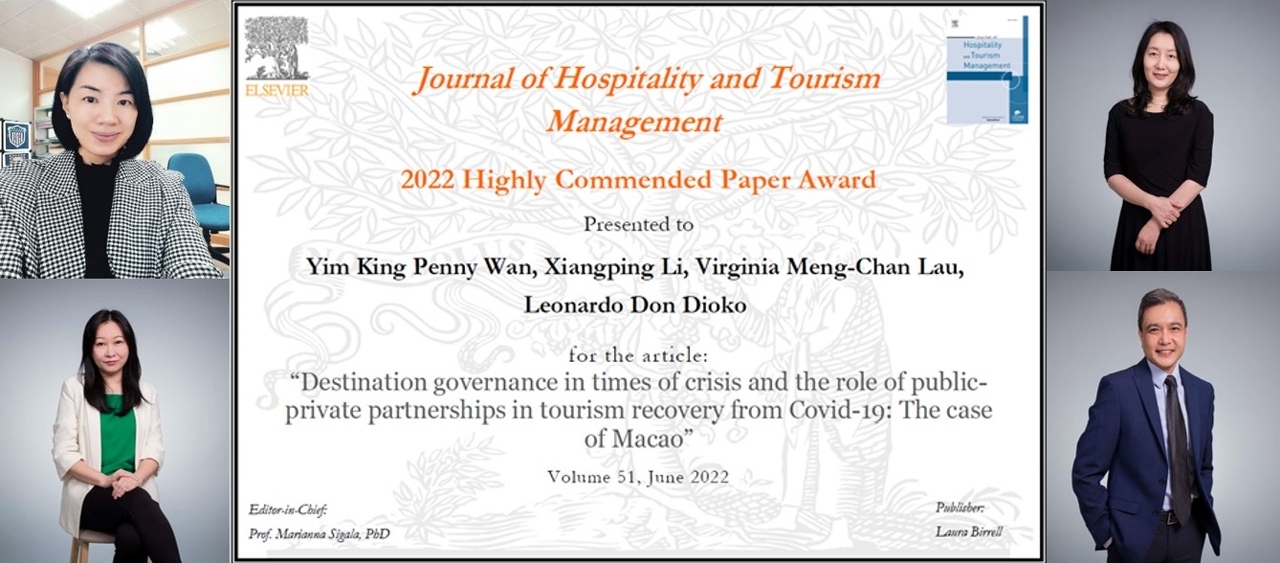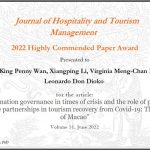 Four IFTM Faculty Members Won the Highly Commended Paper Award by the Prestigious Journal of Hospitality and Tourism Management
Four IFTM Faculty Members Won the Highly Commended Paper Award by the Prestigious Journal of Hospitality and Tourism Management
Four faculty members of the Macao Institute for Tourism Studies (IFTM), Dr. Penny Wan, Dr. Xiangping Li, Dr. Virginia Lau, and Prof. Don Dioko, have received the2022 JHTM Highly Commended Paper Award by the Journal of Hospitality and Tourism Management (JHTM), a leading journal in tourism and hospitality field (SSCI impact factor 7.629 in 2022, rated ‘A’ on the ABDC Journal Quality List). JHTM offers three annual awards to recognise and motivate high quality achievement in published research: one Best Paper Award and two Highly Commended Paper Awards. The editorial team of the JHTM select these papers based on both quantitative analysis (including usage statistics and Scopus citation counts of the published papers) and qualitative assessment of the papers’ contribution to the research field. The study examined how public and private sectors partnered to spur the recovery of the tourism industry from COVID-19. Specifically, it highlighted the crucial roles played by the Macao SAR Government and the crisis leader in tourism recovery. As a part of the research project under the Greater Bay Area Tourism Research Alliance in which IFTM is a founding member, this study was funded byIFTM and supported by theIFTM Tourism Research Centre (ITRC).
Winning article: Destination governance in times of crisis and the role of public-private partnerships in tourism recovery from Covid-19: The case of Macao. Journal of Hospitality and Tourism Management, 51, 218-228, https://doi.org/10.1016/j.jhtm.2022.03.012


